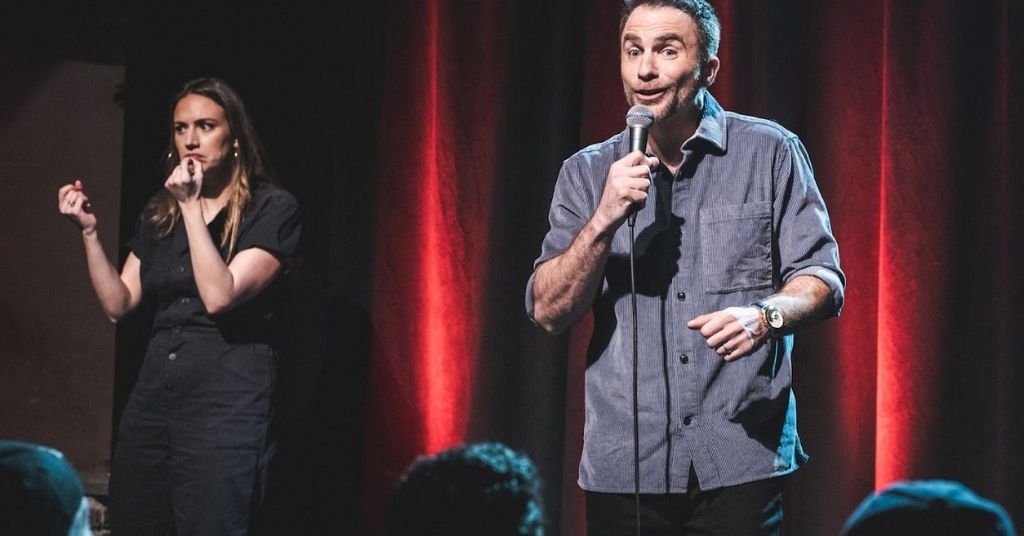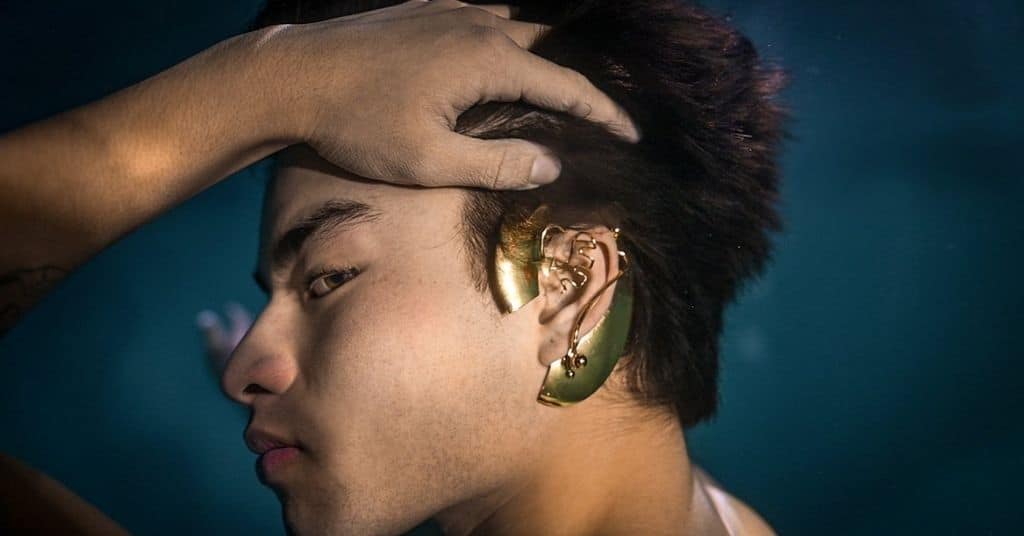
Disney+ to launch new series with deaf superhero
December 4, 2020
U.S. employment rights for people with hearing loss
December 9, 2020Interview with author and poet Raymond Antrobus

If you read poetry, you will likely be familiar with Raymond Antrobus.
His debut poetry collection The Perseverance (Penned in the Margins) was the recipient of numerous awards, including the Rathbones Folio prize, Ted Hughes and Somerset Maugham awards. He was also awarded the 2019 Sunday Times/University of Warwick young writer of the year.
Born deaf, Antrobus wears hearing aids and often explores his experience with deafness in his writing and spoken word. His newest book, “Can Bears Ski?”, is a children’s book that follows Little Bear, who is just discovering his deafness.
“Can Bears Ski?” by Raymond Antrobus
According to the book’s synopsis:
We talked to Raymond Antrobus to learn more about his story.
Interview with Raymond Antrobus

Raymond Antrobus: After writing ‘The Perseverance,’ my debut book of poems which is mainly about language, family and communication in the deaf and hearing world, I’d spent some time visiting Deaf schools and communities around the country and the world. The illiteracy rate for people born deaf is high the world over and as a writer, a reader, and a teacher, that felt like a call to action. My father used to read me bedtime stories and both my parents shared their love of poetry and storytelling with me and that’s been one of my biggest privileges, I think, because I had that growing up, it was part of what nurtured my love of reading and writing. I didn’t feel it was something I couldn’t do, despite teachers at school telling me how poor my academic performance was at the time. I want this book to model safe and affirming parenting, particularly for hearing parents with deaf or hard of hearing children, but I also hope the book tells a story that anyone would enjoy.
HLM: Do you talk about your deafness on a regular basis? What are some situations where being hard of hearing has affected you?
Antrobus: That’s a huge question. I’ve been wearing hearing aids since I was 8 years old, so it’s another part of my identity I’ve had to explain to people. I went to a deaf school and a hearing school, I played for deaf football teams as well as hearing football teams, I’ve been socialized in both those worlds, as well as my heritage (Jamaican and British) which is another layer of being socialized in a world that is largely ableist and racialized. These things affect everyone.
“I went to a deaf school and a hearing school, I played for deaf football teams as well as hearing football teams, I’ve been socialized in both those worlds, as well as my heritage…”
HLM: In what ways does “Can Bears Ski?” reflect your life growing up with deafness?
Antrobus: “Can Bears Ski?” is based on my experience: my parents didn’t know I was deaf until I was around 6 or 7, it wasn’t until my mum bought a “loud” telephone that everyone in the house could hear except me that the penny dropped for them. I was given a hearing test and then everything changed from there. Within a year I was doing speech and hearing therapy. I had in-class support teachers and radio aids as well as hearing aids. The assumption before was that I was just slow, but it was strange that I didn’t feel intellectually defensive until some other kids I was around started mocking me, but I had good friends too (D/deaf and hearing). I don’t want to play out some kind of persecution complex so none of that appears in this book, but I have written adult poetry about that.
HLM: Do you have any advice for parents raising deaf children to get them interested in reading and narrating stories (orally or otherwise)?
Antrobus: I’m not a parent but “Can Bears Ski?” models a father who wants to connect with his child by reading picture books and communicating in ways that show deaf awareness. I would recommend gaining an understanding of cultural (big D Deafness) as well as medical (small d) deafness.
HLM: What do you want children who are hard of hearing to know? What would you tell your younger self?
Antrobus: I was in denial about needing hearing aids for years and my social life and my professional life suffered. I lost jobs because I kept making mistakes by pretending I could hear without hearing aids. I wanted to be an actor and I got roles where I couldn’t hear my cues and rather than telling the director I was deaf, I quit. I wish I had seen more examples of d/Deaf people functioning in the deaf and hearing worlds, I wish I was shown books and films by d/Deaf people. I was exposed much, much later in my life to a thriving scene of d/Deaf creative communities in the UK and I made friends with other d/Deaf writers and actors. I think my younger self would’ve had it a bit easier if he had more access to D/deaf role models.
“I was in denial about needing hearing aids for years and my social life and my professional life suffered.”
HLM: How involved are you in d/Deaf culture?
Antrobus: I went to a D/deaf school that was part of a hearing school, by the time I left I shied away from anything to do with deafness. I had a lot of self-esteem issues that were rooted in shame for being deaf. I visited the school a few years back, especially to see my English teacher and thank her for encouraging me to write. She said, “I knew you’d be alright once you accepted deafness as part of your identity,” and she was so right. When I was living in London, I would go to deaf-led theatre plays (Deafinitely Theatre, Graeae, etc) and even wrote a play with a few Deaf and CODA friends that was put on at the Roundhouse in London. I sometimes went to Deaf Pub, but hadn’t been for a while, yet knowing it was there and I had a welcoming community was (and is) very empowering.
HLM: What kind of hearing technology do you wear? How do you view hearing aids now?
Antrobus: I’ve been wearing NHS hearing aids most my life (which were free), which is another major privilege I’ve had. My parents wouldn’t have been able to afford all the support I got if they had to pay for it. My poetry book won quite a lucrative award and I invested in a pair of Oticon Digital hearing aids, which are great! The sound is sharper and they connect to my phone, my laptop, as well as the doorbell. I adjusted well, but that’s because my brain is adapted to hearing aids due to wearing them for so long. My only problem really is that they are so small and sometimes people don’t notice them. I want people to notice my hearing aids, I want them to know they are speaking to a deaf person and that’s a complete revolution of how I felt about hearing aids and deafness before.
“I want people to notice my hearing aids…”
HLM: What do you hope for people who are hard of hearing in the future in regards to accessibility in accomplishing their dreams? Where have you struggled in finding understanding and opportunities in your path, and what would you hope would change to help others overcome them?
Antrobus: It’s largely about education, if we are ever lucky enough to be socialized in a world that isn’t ableist (as well as classist, racist, sexist, homophobic, transphobic, etc) then we would probably be well on the way to paradise. Now we have a generation that is serious about change and social justice. If we think of society as a building, then my hope is that when that building is built, there are a range of people with backgrounds and experiences in the room helping to build it.
HLM Book Club
“Can Bears Ski?” by Raymond Antrobus is the HLM Book Club pick for December!
To participate, simply read the chosen book of the month with us, then join the conversation on Instagram and Facebook.
If you’d like to be part of a closer discussion, you can also apply to be a Phonak hEARo.
Read more: 6 children’s books about hearing loss




